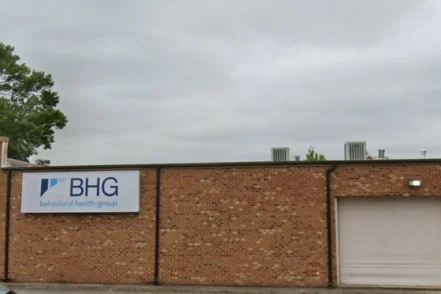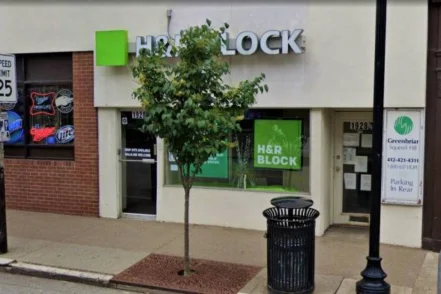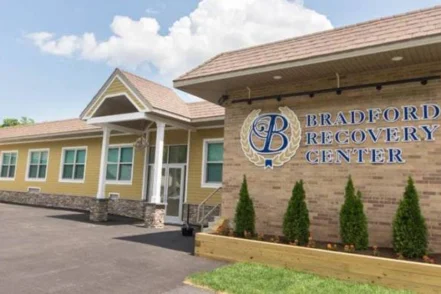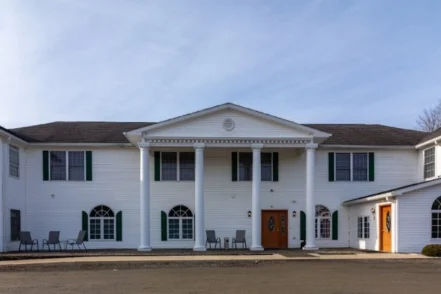About Stairways Behavioral Health RTFA
Stairways Behavioral Health RTFA is an adult residential treatment program located in Erie, Pennsylvania. It’s right next to Veterans Stadium. This program provides supportive care to adults who are struggling with their mental health. While the core of the program here is to support your mental health, you’ll also have access to services if you have a co-occurring substance use struggle.
RTFA’s program is designed to help support you as you move through psychiatric episodes or challenges that are affecting your life. Serving as an alternative to inpatient mental health care, the RTFA program offers tangible services like individual counseling, group therapy, and life skills practice that will help you build skills for a healthier future.
Stairways Behavioral Health’s program does this by providing education, employment support, and overall life skills practice. With this approach, you’ll learn what it means to lead a healthy life by following a structured schedule.
During a typical day, you can expect to practice how and why it’s important to get a full night’s rest, eat a well balanced, three course meal, and engage with stressful emotions that would otherwise disrupt your mental peace in a meaningful way.
During your down time, you’ll have access to leisurely activities through different recreational outlets. This too is another way for you to practice how to use your time thoughtfully so that you don’t fall into a place of mental distress or relapse with substance use.
This is a much smaller sized residential treatment program than most. There are 15 beds in this facility, and you’ll typically stay no more than 30 days.
By having a supportive team by your side, you won’t be overwhelmed by everyday responsibilities. Instead, you’ll feel empowered to take them on and you’ll also gain a sense of accomplishment when you lead successful days.
As you wrap up your time in the program, you can get connected to other services that will help improve your life. This includes employment support, access to safe housing, and even access to adult education services.
Addiction Treatment Programs
Dual Diagnosis
A dual diagnosis, when you have mental health and substance use concerns, can make recovery harder. Be sure to choose a rehab in Pennsylvania that can address both issues. Part of treatment will include managing your mental health symptoms so you aren’t tempted to use substances to self-medicate. This can be done without counseling and medication.
Young Adult Rehab
Those who join a young adult rehab program in Pennsylvania are given training in key life skills to help them transition to adulthood. These treatment programs offer detox, inpatient treatment, and outpatient care tailored to the unique needs and challenges of young adults.
Adult Program
If you’re an adult struggling with substance use, consider an adult program for rehab in Pennsylvania. These treatment programs offer detox, inpatient treatment, and outpatient care tailored to the specific needs and challenges of adults.
Senior Rehab
Insurance Coverage
Medicaid
If you qualify in Pennsylvania, Medicaid is one of your options when it comes to paying for rehab. Programs that accept Medicaid can offer any level of care, including detox, inpatient, and outpatient. Your out-of-pocket costs, if any, are likely to be very low.
Private insurance
One option for paying for rehab in Pennsylvania is using private insurance. Plans vary, so be sure to contact your insurance company to find out coverage details and what copayments or deductibles you might be responsible for.
Self-pay options
Self-pay is an option for paying for rehab in Pennsylvania that maximizes your ability to choose the treatment center. You can use a medical loan, write a check, or electronically send money to the center. Payment arrangements may vary depending on the type of treatment
Financial aid
One way to pay for rehab in Pennsylvania is to use financial aid programs if you qualify. You can pay for detox, inpatient treatment, or outpatient care using scholarships or grants from the treatment center or from local organizations.
Medicare
Medicare is a good way to pay for substance use treatment in Pennsylvania. You’ll want to find a treatment center that accepts your Medicare plan and find out details about coverage and out-of-pocket costs.
Levels of Care
- 1
Inpatient Rehab
For many people, it’s important to focus entirely on recovery without distractions, and inpatient treatment in Pennsylvania gives you that opportunity. Building a new life for yourself is challenging, and the focused, uninterrupted treatment you receive during inpatient care can help you lay that foundation.
Therapies
Cognitive Behavior Therapy
Cognitive behavioral therapy (CBT) in Pennsylvania helps you address the thinking patterns that are holding you back from a better life. Learning which thought distortions you are most susceptible to can help you challenge unhelpful thoughts, create better interpretations of situations, and choose healthier responses.
Dialectical Behavior Therapy
Dialectical behavioral therapy (DBT) in Pennsylvania gives you the confidence to overcome challenges that are holding you back from a better life. Learning to develop a healthier mindset through stress management skills gives you the ability to create better circumstances in your life, and choose healthier responses to challenges.
Experiential Therapy
Sometimes trauma and emotions are buried deeply, and experiential therapy in Pennsylvania is a non-traditional therapy that can allow you to work through them. During treatment, you may take part in art projects, musical expression, or physical challenges like an obstacle course. These allow you to process emotions in a non-traditional way.
Family Therapy
Your family can be an important part of your support network, but you may have to work through conflict and broken relationships first. Family therapy in Pennsylvania gives you that opportunity. Family therapy can mean addressing uncomfortable and challenging issues, but having a professional therapist facilitating the sessions makes it easier for everyone to share honestly and improve their relationships.
Group Therapy
You’re not alone as you work through addiction in Pennsylvania. Group therapy will help you connect with others in similar positions so you can support and encourage each other. Some of the topics covered in group therapy include overcoming shame and guilt, improving communication, developing healthy coping skills, and building a support network.
Individual Therapy
Talking about what you’ve experienced is an important way to heal, and individual therapy in Pennsylvania gives you that opportunity. Individual therapy sessions generally last 60 minutes and may include discussing a specific issue, education about specific topics, or developing life skills.
Trauma Therapy
Trauma-informed therapy in Pennsylvania is led by a professional who facilitates clients sharing about their experiences and emotions. Trauma-informed therapy is a normal part of evidence-based treatment programs and may be a part of inpatient treatment, outpatient care, or both. Methods include sharing of experiences, peer support, mindfulness practices, and more.
Location
Contact Stairways Behavioral Health RTFA
Top Drug Rehab Centers in Pennsylvania
-
 Pennsylvania
PennsylvaniaBehavioral Health Group Chesapeake Treatment Center
3322 Western Branch Boulevard, Suite A Irwin, Pennsylvania 23321
-
 Pennsylvania
PennsylvaniaSerenity at Summit Outpatient
702 Hyde Park Doylestown, Pennsylvania 18902
-
 Pennsylvania
PennsylvaniaAlcohol and Drug Abuse Services Bradford
2 Main Street, Suite 600 Bradford, Pennsylvania 16701
-
 Pennsylvania
PennsylvaniaGreenbriar Treatment Center Squirrel Hill
1928 Murray Avenue Pittsburgh, Pennsylvania 15217
-
 Pennsylvania
PennsylvaniaA Better Today Stroudsburg
18 South 9th Street Stroudsburg, Pennsylvania 18360
-
 Pennsylvania
PennsylvaniaWhite Deer Run of Allenwood
360 White Deer Run Road Allenwood, Pennsylvania 17810
-
 Pennsylvania
PennsylvaniaBradford Recovery Center
64 School Street Millerton, Pennsylvania 16936
-
 Pennsylvania
PennsylvaniaGateway Rehab Green Tree
1016 Greentree Road, Suite 300 Pittsburgh, Pennsylvania 15220
-
 Pennsylvania
PennsylvaniaTadiso
1425 Beaver Avenue Pittsburgh, Pennsylvania 15233
-
 Pennsylvania
PennsylvaniaHuntington Creek Recovery Center
890 Bethel Hill Road Shickshinny, Pennsylvania 18655
-
 Pennsylvania
PennsylvaniaGeisinger Marworth
100 Lily Lake Road Waverly, Pennsylvania 18471
-
 Pennsylvania
PennsylvaniaMerakey Parkside Recovery
5000 Parkside Avenue, Suite 9000 Philadelphia, Pennsylvania 19131
-
 Pennsylvania
PennsylvaniaPocono Mountain Recovery Center
3437 Route 715 Henryville, Pennsylvania 18332
-
 Pennsylvania
PennsylvaniaRecovery Centers of America at Devon
235 West Lancaster Avenue Devon, Pennsylvania 19333
-
 Pennsylvania
PennsylvaniaSt Josephs Institute
134 Jacobs Way Port Matilda, Pennsylvania 16870
-
 Pennsylvania
PennsylvaniaAvenues Recovery Center at Lake Ariel
50 Industrial Park Way Lake Ariel, Pennsylvania 18436